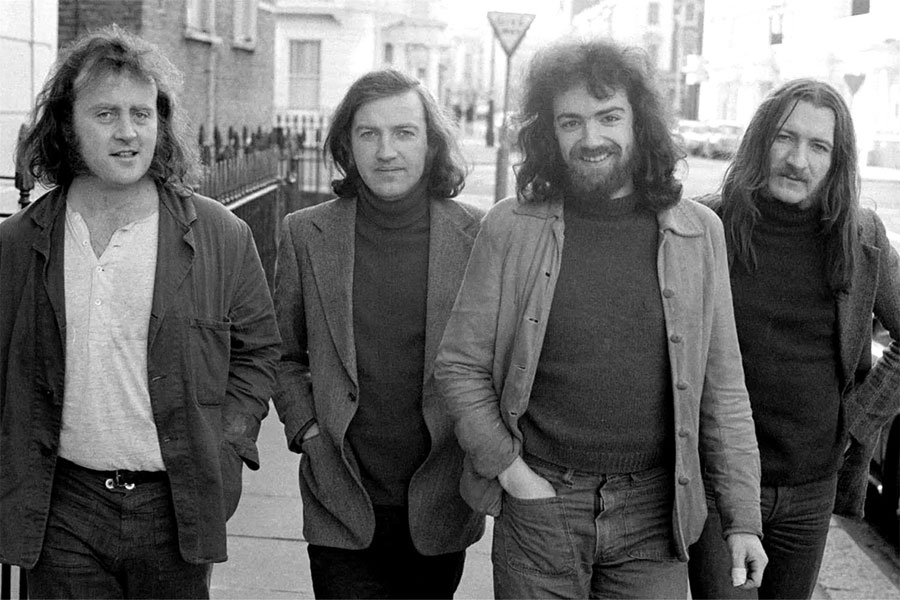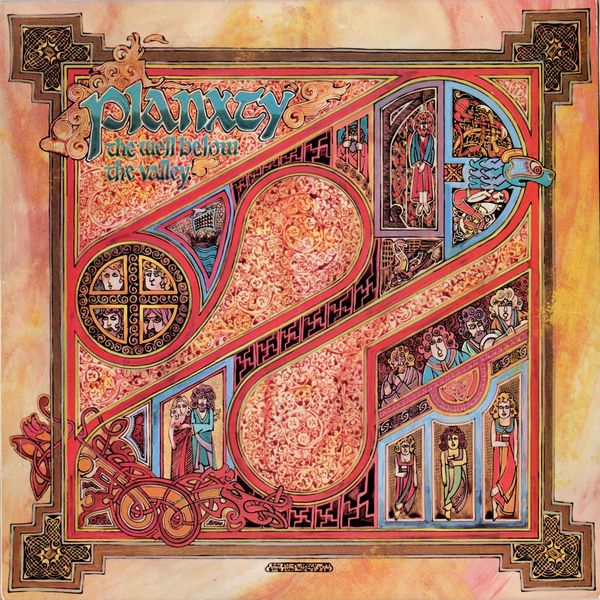

 |


 |
Sleeve Notes
We start with a song from Connemara called "CÚNLA" which Seamus Ennis translated from the Irish some years ago. We heard it first from Kevin Conneff, a fine singer who runs the Tradition Club in Dublin.
Silver-tongued recruiting sergeant meets callow youth, inveigles him into public house and offers him the King's shilling. Youth awakes next day on the parade ground -bemoans lot and blames all on feckless father. We learned this one - "PAT REILLY" - from Sam Henry's fine North of Ireland collection - "Songs of the People".
Two slip jigs follow, "THE KID ON THE MOUNTAIN" and "AN PHIS FHLIUCH". The first of these is a particularly fine version which we learned from Seamus Ennis. Seamus tells us that this exactly as his father used to play it on the pipes." AN PHIS FHLIUCH" comes originally from Willie Clancy's father who was a fine flute player.
"AS I ROVED OUT" - We learned this sad and beautiful song from the singing of Paddy Tunney who lives in Letterkcnny, Co. Donegal. He has described it as dating back to the days of the famine, when any bit of property at all was enough to tempt a man to jilt his true love in favour of the "lassie with the land".
Next come two Reels called "THE DOGS AMONG THE BUSHES" and "JENNY'S WEDDING".
"THE WELL BELOW THE VALLEY" had never been collected from oral tradition in Britain or Ireland until Tom Munnelly heard John Reilly of Boyle, Co. Roscommon sing it. Other versions of the song appear in Child's Collection (No. 21). From these it is apparent that the song is based on the story of Jesus at the Well. Tom Munnelly tells us that many older singers refuse to sing the song because of its sinister, incestuous overtones.
Side two opens with an old harp tune called "HEWLETT" of which nothing is really known. It is presumed to have been composed by the blind harper Carolan.
"BEAN PHÁIDíN" (The Woman of Páidín). A song from the West Coast of Ireland, learnt from the singing Seán Mac Donncadh. The best way to understand this song would be to learn Irish, the next best thing is a translation. This one is not altogether literal, but follows the meaning fairly closely.
BEAN PHÁIDíN or The Woman of Páidín.
Oh,'tis pity that I am not, that I am not, that I am not the woman of Páidín.
'Tis pity that I am not his woman, the woman he has, gone from him.
Oh, I went down by the shingles and round by Béal Áth na Bóige.
Looking in through people's windows, to search out the woman of Páidín.
And I went down Tóin a'Roisín, and back up by Barr a'tSóilín,
And called in to Matthew O'Casey's, to search out the woman of Páidín.
Oh, I'd go to Galway, to Galway, to Galway I'd travel with Páidín.
Oh, I'd go to Galway, to Galway, to be in his boat with him returning.
I wish that your legs they were broken, a curse on you, woman of Páidín.
I wish that your legs they were broken, your legs and your bones to be broken.
The first of the two hornpipes we believe to be a version of "THE FISHERMAN'S HORNPIPE", the second one - "CRONIN'S HORNPIPE" - comes from the Kerry fiddling tradition through Padraic O'Keeffe and Denis Murphy.
Although the next song has the same title as one on the first side, the resemblance ends there - it is a completely different song. This version was learned from Andy Rynne of Prosperous, Co. Kildare.
The next tune is a double jig which was heard from the late Willie Clancy. Willie himself felt this to be one of the finest and probably one of the oldest jigs in existence. He called it "THE HUMOURS OF BALLYLOUGHLIN".
Finally, a song of Andy's called "TIME WILL CURE ME", which he hopes is self-explanatory. Suffice it to say that the girl was Israeli, that "Sabra" is the name of a particularly hardy cactus that grows in the Negev Desert and that, time did cure him.